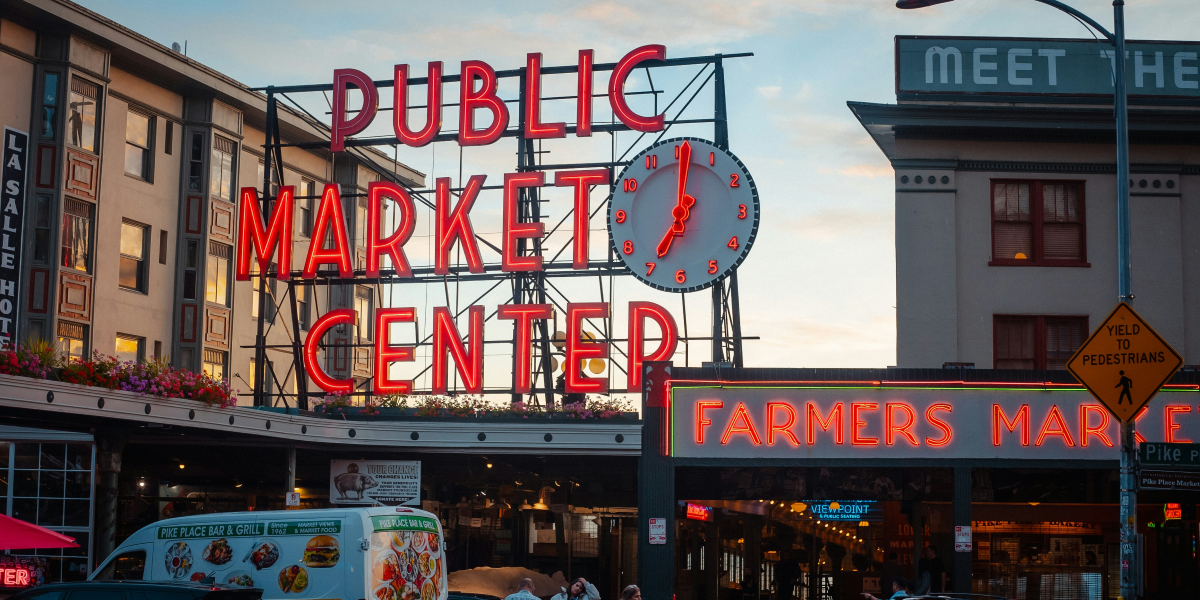Seattle, a city renowned for its tech giants and vibrant cultural scene, is also experiencing a dynamic transformation in its retail landscape. The convergence of innovation, sustainability, and consumer-centric strategies has propelled Seattle’s retail industry into a new era of growth and resilience. This article explores the evolution of Seattle’s retail sector, examines current trends shaping the industry, highlights key players driving change, discusses the challenges faced, and looks ahead to future opportunities that promise to redefine the shopping experience in the Emerald City.
Evolution of Seattle’s Retail Landscape
From Traditional Stores to Experiential Retail
Historically, Seattle’s retail sector was dominated by brick-and-mortar establishments catering to the city’s growing population. Iconic stores like Nordstrom, founded in Seattle in 1901, set the standard for high-quality retail experiences. Over the decades, Seattle evolved into a retail hub with a mix of luxury boutiques, department stores, and specialty shops.
In recent years, the rise of experiential retail has marked a significant shift. Retailers are moving beyond transactional models to create immersive shopping experiences that engage customers on multiple levels. Stores are incorporating interactive displays, live events, and community-centric activities to attract and retain shoppers, transforming retail spaces into vibrant community hubs.
Integration of Technology and E-Commerce
The advent of e-commerce has profoundly impacted Seattle’s retail landscape. Retailers have increasingly integrated digital technologies to complement their physical stores, offering seamless omnichannel experiences. Online platforms, mobile apps, and digital payment systems have become essential components of the retail strategy, enabling businesses to reach a broader audience and enhance customer convenience.
Seattle’s tech-savvy environment has fostered innovation in retail technology, with local startups developing cutting-edge solutions in areas such as augmented reality (AR), artificial intelligence (AI), and data analytics. These technologies enable retailers to personalize shopping experiences, optimize inventory management, and improve operational efficiency.
Current Trends Shaping Seattle’s Retail Industry
Sustainability and Ethical Practices
Sustainability has become a cornerstone of Seattle’s retail strategy. Consumers are increasingly prioritizing eco-friendly products and ethical business practices, prompting retailers to adopt green initiatives. Sustainable practices include using recycled materials, reducing carbon footprints, and supporting fair trade. Brands like REI and Patagonia, although national, have a strong presence in Seattle and are exemplars of sustainable retailing.
Additionally, local retailers are embracing circular economy principles, offering repair services, recycling programs, and products designed for longevity. This focus on sustainability not only meets consumer demand but also aligns with Seattle’s broader environmental goals.
Personalization and Customer Experience
Personalization is a key trend driving customer engagement and loyalty in Seattle’s retail sector. Retailers leverage data analytics and AI to understand customer preferences and behavior, enabling them to offer tailored recommendations and personalized marketing. Personalized experiences range from customized product offerings to individualized shopping assistance, enhancing the overall customer journey.
Stores are also investing in enhancing in-store experiences through interactive technologies such as AR mirrors, smart fitting rooms, and virtual try-ons. These innovations create a more engaging and convenient shopping environment, encouraging customers to spend more time and make informed purchasing decisions.
Rise of Local and Artisanal Brands
Seattle’s retail scene is witnessing a surge in local and artisanal brands that emphasize craftsmanship, authenticity, and community connection. Consumers are increasingly drawn to unique, locally-produced goods that reflect the city’s diverse cultural heritage. Markets like Pike Place Market continue to thrive, showcasing handmade products, gourmet foods, and artisanal crafts.
Local brands benefit from the city’s supportive ecosystem, which includes incubators, funding opportunities, and collaborative networks. This environment fosters creativity and innovation, allowing small businesses to scale and compete with larger retailers.
Integration of Omni-Channel Strategies
Omni-channel retailing, which integrates online and offline channels, is becoming standard practice in Seattle’s retail industry. Retailers offer multiple touchpoints for customers, such as online stores, physical locations, mobile apps, and social media platforms. This seamless integration ensures a consistent and convenient shopping experience, regardless of the customer’s preferred channel.
Services like buy-online-pickup-in-store (BOPIS), curbside pickup, and same-day delivery have become increasingly popular, catering to the evolving needs of modern consumers. These strategies not only enhance customer satisfaction but also drive sales and reduce operational costs.
Key Players Driving Change
Nordstrom
As one of Seattle’s flagship retailers, Nordstrom continues to lead the way in luxury retail and customer service excellence. The company has embraced digital transformation, integrating its online and offline operations to offer a cohesive shopping experience. Nordstrom’s investments in AI and data analytics enable personalized marketing and inventory management, setting industry standards for innovation and efficiency.
REI
REI (Recreational Equipment, Inc.) exemplifies sustainable and community-focused retailing. The cooperative model, strong commitment to environmental stewardship, and focus on outdoor lifestyle products resonate deeply with Seattle’s eco-conscious consumers. REI’s in-store experiences, community events, and sustainability initiatives reinforce its position as a trusted and beloved local brand.
Local Boutiques and Specialty Stores
Seattle’s local boutiques and specialty stores, such as Macrina Bakery, Frank’s Coffee, and Knead Pizzeria, contribute to the city’s unique retail mosaic. These businesses offer specialized products and personalized service, fostering strong customer relationships and enhancing the overall retail diversity. Their success underscores the importance of niche markets and the demand for unique, high-quality offerings.
Retailers that successfully integrate digital and physical channels can offer greater convenience and flexibility to customers, driving engagement and sales. Innovations such as virtual stores, augmented reality shopping, and advanced logistics solutions will play a pivotal role in this evolution.
Published by: Martin De Juan






